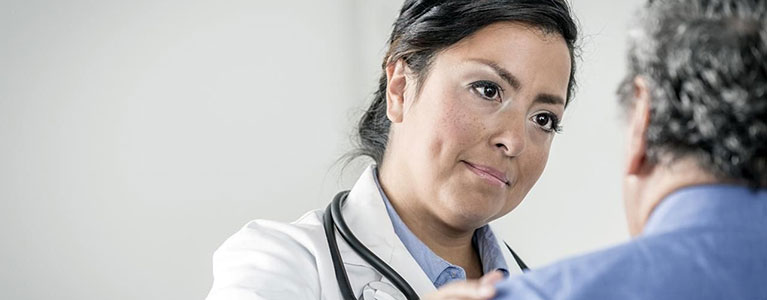Caring for the Caregivers
Aug, 2019

A recent study released by the Harvard University Global Health Institute declared physician burnout a global health crisis. Among three recommended actions to combat the effects of a changing health system, the study suggested that “institutions should immediately improve access to and expand health services for physicians, including mental health services.” One of the efforts at John Muir Health is called Care for the Caregivers.
While the initial intent was to support physicians, the program was quickly expanded to include anyone asking for or interested in the services offered by Care for the Caregivers. Under the direction of Dr. John Merson, an orthopedic surgeon now leading the physician wellness effort at John Muir Health, and Deborah Austin, manager of inpatient experience, the program has just entered its second year by training an additional 48 staff members to respond to emotionally impactful events that have the potential to diminish the wellbeing of those involved.
“We’ve had 78 deployments in the past year,” said Austin. “It might be that the victim of an accident reminds someone of a member of their own family. It could be a difficult situation at home that begins to impact performance at work. We want every member of our team, regardless of the circumstances, to be at their absolute best when working in our hospitals.”
The team works to provide the closest peer-to-peer support possible. When feasible, a surgeon is dispatched to talk with a fellow surgeon. A nurse will respond to the needs of another nurse. The support is most effective when provided within three hours of an event, so time is always of the essence.
“I came to work at John Muir Health because I wanted to make a difference,” said Jy Nowlin, Director of Non-Clinical and Ancillary Support Services and a trained Care for the Caregivers Responder. “I don’t directly care for patients anymore but I’m honored to support the people who do. Caring for each other is one of the most important things we do. It should never be business as usual.”
“I think everyone would believe that a system that cares for their people provides better care for their patients,” said Merson. “Our burnout rate at John Muir Health is lower than the national average but we never want to lose sight of how important it is to care for our caregivers.”
Our sincerest thanks to all the trained Care for the Caregivers responders. We appreciate the many hours you spend on this program – some of them after many of us have gone to sleep. Your commitment to your colleagues and our patients is felt throughout John Muir Health.
Interested in learning more about physician burnout? Visit the Harvard University Global Health Institute Call to Action on Physician Burnout.